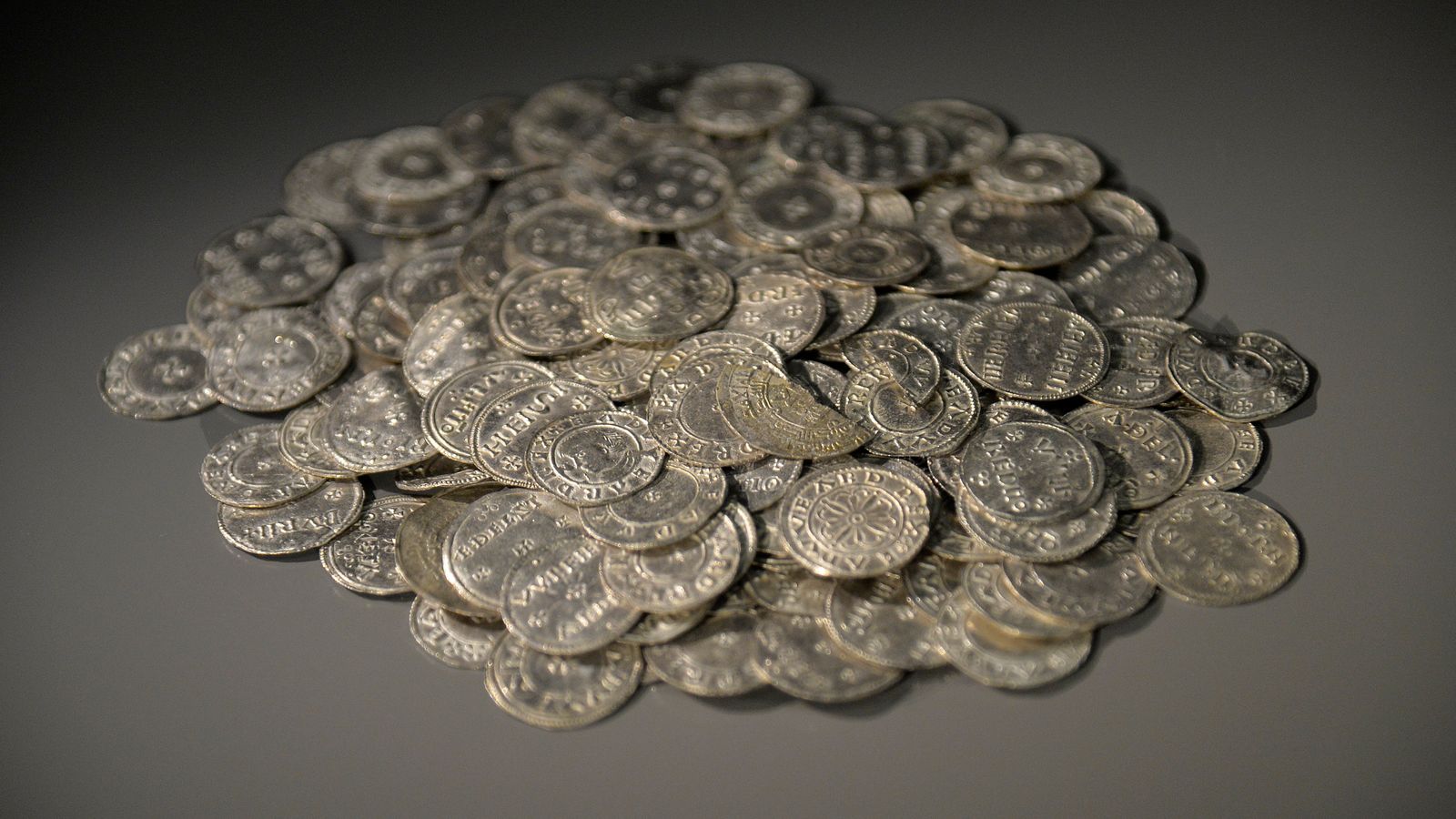Two men have denied charges relating to a Viking hoard of historically important coins and silver worth almost £1m.
Roger Pilling, 73, and Craig Best, 44, appeared before Durham Crown Court to plead not guilty to all charges.
They denied a charge of conspiracy to convert criminal property – Anglo-Saxon coins – between September 2018 and May 2019.
Pilling, of Loveclough, Lancashire, also denied two charges of possessing criminal property – Anglo-Saxon coins and a silver ingot.
Best, from Bishop Auckland, County Durham, denied a charge of possessing criminal property, namely Anglo-Saxon coins.
They will go on trial on 20 June next year.
Durham Police said previously that officers seized a large number of coins and a silver ingot in two raids.
COVID news – UK latest live: Coronavirus data means there’s no need to deviate from ‘plan A’, says PM – amid new claim about COVID start date
Independent inquiry launched into police ‘systematic failures’ following the murder of Sarah Everard by serving officer
Insulate Britain: Climate change group apologises for ‘causing disruption’ after PM calls them ‘irresponsible crusties’ for blocking roads
The hoard contained coins of Alfred the Great of Wessex and his less well-known contemporary Ceolwulf II of Mercia.
It is considered important because it fills a gap in the understanding of history at this time.
Until now, accounts suggested Ceolwulf II was a puppet of the Vikings and a minor nobleman rather than a proper king.
But the coins tell a very different historical story and show two rulers standing side by side as allies.
King Alfred inflicted a major defeat on the Vikings in 878 and experts from the British Museum believe the coins belong to a hoard consistent with the location of the Viking army at that time.






















